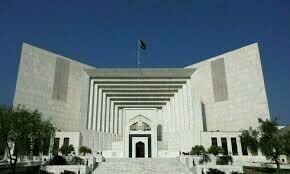ACCORDING to Article 248(1) of the country’s Constitution, the president, governor, prime minister, federal ministers, ministers of state, chief ministers and provincial ministers “shall not be answerable to any court for the exercise of powers and performance of functions of their respective offices or for any act done or purported to be done, in the performance of those functions”.
Likewise, according to Article 248(2), “no criminal proceedings whatsoever shall be instituted against the president or a governor during his term of office”.
Moreover, Article 248(3) stipulates that “no process for arrest or imprison-ment of the president or a governor shall issue from a court during his term of office”.
Prima facie, these and such other provisions of the Constitution, which describes the country as an ‘Islamic republic’, happen to be in sharp contrast to the tenets and teachings of Islam. Historically, none of the four caliphs ever enjoyed any such immunity, and all were answerable to the courts.
It is unfortunate that such un-Islamic and undemocratic provisions exist in the Constitution in a country where all laws are expected to be in line with Islamic teachings. The Council of Islamic Ideology (CII), whose primary responsibility is to identify such inconsistencies, continues to be negligent in this regard.
The democratic government in office as well as the two houses of parliament should join hands to undo the un-Islamic clauses guaranteeing immunity so that the ruling elite may stand answerable to a court of law like any law-abiding citizen of the country. The CII should also look at the inconsistency and make necessary recommendations in this regard.
M. Sharafat Ali Zia
Islamabad
Published in Dawn, May 5th, 2024














































Dear visitor, the comments section is undergoing an overhaul and will return soon.